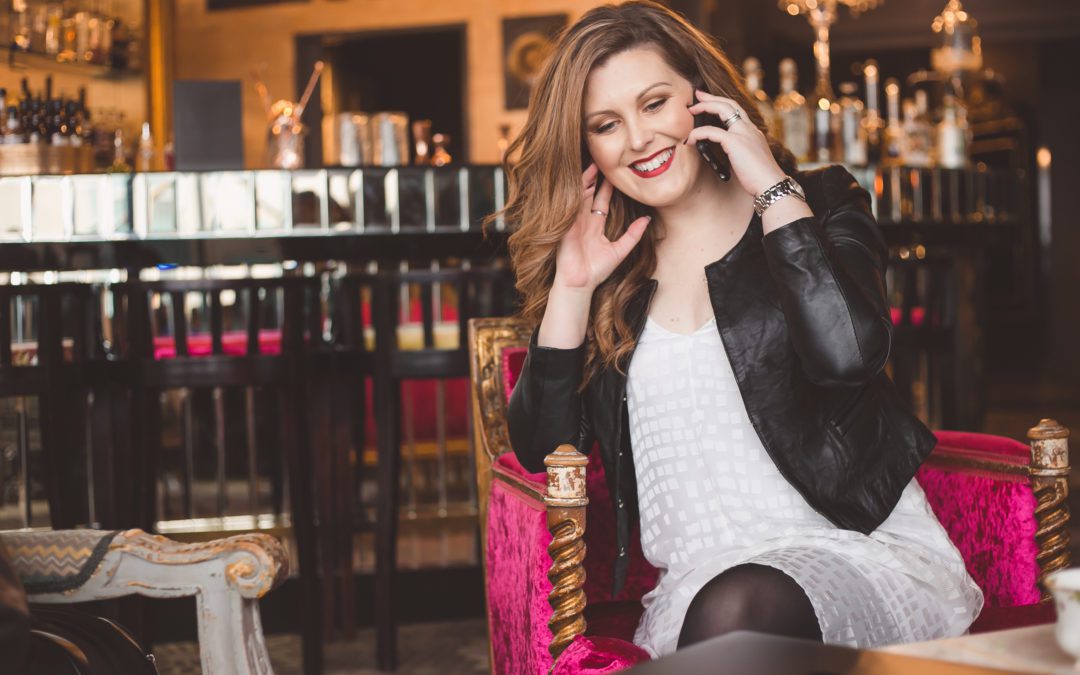
Can anyone call themselves a coach?
Coaching is a relatively unregulated industry, so there are no specific requirements to become a life or business coach. Coaching is unlike councillors, therapists or financial advisors, all of whom are required to have a minimum level of education, training and or supervision and standards to qualify in their profession.
This makes it challenging when you search for a coach to know what to look for in a professional coach and who you can trust.
Let’s break it down because not all coaches are created equal, and you need to know what a coach is before researching whether that’s what you need.
What exactly is coaching?
Simply put, coaching is about helping someone achieve their personal or professional goals. A professional coach will help clients find clarity from within, find solutions to overcome their challenges, and ultimately accomplish their specified goals on their terms.
An accomplished professional coach will facilitate profound and lasting change in their clients’ lives by supporting them to dig deep within to their core and unlock their true potential.
Mentor, consultant, therapist or coach: What do you need to know?
Coaching can often be confused with other professional support so let’s break down the differences between coaches, mentors, consultants and therapists. Here’s what you need to know:
Mentorship
A mentor is the equivalent of a wise role model. Someone who has trodden the way ahead already will show you the same pathway to get ahead.
Unlike mentorship, where the mentor requests the mentee follow, a coach will ask the client where they want to go next.
A coach will help their client forge their pathway to their chosen destination, honouring that every journey is as individual as every client. Coaching isn’t about being directive and telling the client what to do to get the results or solution or reach a goal. Coaching honours the principle that everyone is unique, and one person’s way is not a guarantee for everyone to be successful following one path.
Consulting
A consultant improves a situation, and a coach improves people.
Consultants get hired by teams, leaders, or organisations to find solutions to specific problems. A consultant is seen as an expert in that solution-focused capacity or industry and can advise and implement the chosen solution.
A coach doesn’t have to be an expert in an industry to coach a client because they do not draw on their own experiences as a model of success. Clients are the experts in their own lives and businesses, and coaching facilitates the clients to uncover their expertise.
Therapy
A therapist will often work with their client to resolve issues from their past to support them to move from a state of dysfunction to fully functional in the present. This work can involve resolving trauma and conflict from the past to enable the client to heal in the present.
A coach will work in the present state with their client to create the future they desire, which is very much where a client is in their goal planning and vision casting and forward-thinking. A coach will support the client to identify and overcome any inner obstacles to create the future they desire, but the coaching doesn’t intently focus on only the past to bring them to the present.
Coaching
A coach does not have an agenda, and they are impartial and non-judgmental and believe that their client knows what is best for them.
A coaching relationship is co-active, meaning it’s achieved in collaboration, solely focussing on the client’s wants. A coach will not be attached to any outcome or decision as they are entirely objective and hold their client’s vision in mind to constantly guide the client step by step to living their best life.
The International Coaching Federation (ICF) defines coaching as partnering with clients in a thought-provoking and creative process that inspires them to maximise their personal and professional potential. The results can be life-changing. Clients often say they’ve created a new outlook on life – finding inspiration, courage, confidence, and answers to long-burning questions within themselves.
Coaching is an unregulated industry: What do you need to know?
There is a reason why coaching has begun to be stereotyped as an industry that anyone can belong to, and it is a shame because professional coaching can be life-changing. Professional coaching provides a truly transformative space for people to make lasting changes in their lives and businesses through diving deep into self-awareness and unlocking their full potential. So how is it an unregulated industry?
Such a great question, and in short, it’s pretty unbelievable that anyone can call themselves a coach. However, it is essential to mention that professional coaches choose to be regulated by adhering to standards and ethics through an associated body (for example, the International Coaching Federation (ICF). Coaches who do this understand and believe in the need to regulate the coaching industry and uphold the very best in professionalism and code of conduct for their clients and profession.
But these days, it’s hard not to find someone who has had a poor experience with a coach, hence the stereotype.
In truth, it is not always the coach alone who is responsible for this stereotype. As stated earlier, coaching is a co-active approach where the client and coach collaborate in partnership, and that’s where the client needs to bear responsibility for being educated in their role and responsibilities before entering into a partnership.
Many clients believe that working with a coach will support them in achieving their goals; however, they fail to recognise that they are the implementers of the actions they create and therefore must work on between coaching sessions. Unlike consultants, a coach will not do the work for you. Unlike a mentor, they are not giving you a one size fits all pathway to follow.
Coaching results depend on the commitment and actions of both the client and the coach. So the clients equally need to uphold their commitment to the partnership.
Because the industry is unregulated, it is essential to note that just because a professional coach has not chosen to accreditation with an association like the ICF, it does not automatically mean that they are not a good coach. So it would be best if you did thorough research.
How to find a quality professional coach?
Firstly, you need to confirm that you’re looking for a professional coach initially – not a mentor, therapist, or consultant. Then you can begin to find a quality professional.
With the coaching industry swamped and unregulated, you must do your research and take your time choosing the right coach for you because it is an investment in time and money. Here are a few ways to get ahead in finding the right coach for you:
- One of the best ways to get started and find a quality professional is by asking around and getting recommendations. You will hear negative and positive feedback, and the more you listen to it, the closer you are to hearing that one reason that will bond you to one coach and not the other.
- Interview a few coaches, ask them questions about how they would support you, how they describe their work and what a coaching session or program with them would look like, for example. It is crucial to build rapport with your chosen coach, and interviewing them will help you instinctively feel who would be a good fit for you and if you like their approach.
- Review the coaches testimonials. Suppose they are a professional coach and have worked in the industry for a while. In that case, they will have client reviews, maybe even interviews you can watch to get another feel for their personality, approach and whether you feel drawn to working with them. Ask about the coaches’ training, qualifications, length of time in the industry, and the previously facilitated results for their clients.
- You are well within your rights to choose to work with a regulated professional coach or an unregulated professional coach. You can go to your preferred association like the ICF and view the directory of professional coaches.
As with all new ventures, it takes a while to realise if coaching is right for you, if the coach is right for you and if you are ready to be coached. Remember, you cannot see into the future regarding all your decisions. No matter the research you do and the answers you get, you still have to build a relationship with your coach and allow yourself to understand and become immersed in the coaching experience.
Not all professional coaches are created equal, and there are many coaching services available. Please check out this blog to learn more about ‘How to choose the right Business Coaching Services for you‘
In conclusion
It is fundamentally important to understand what coaching is and that it is not mentoring, consulting or therapy and not a combination of these either.
Coaching helps people tap into their inner potential unlocking their creativity and productivity to create and design a life and business uniquely on their terms.
Yes, anyone can call themselves a coach. However, professional coaches can choose accreditation with a coaching association.
Does accreditation make for a better coach or coaching experience, though?
In all honesty, it is like every other professional who has to be accredited. There are positive and negative experiences regardless, and experience can count for a lot and results.
This is why it is so important to educate the client in being discerning with their decision to work with a professional coach, as much as it is to inform the coaches in their profession so that they can be the best coach they can be.
Anyone can call themselves a coach. ICF-credentialed coaches are professional coaches who have met stringent education and experience requirements and have demonstrated a thorough understanding of the coaching competencies that set the standard in the profession.
ICF-credentialed coaches adhere to strict ethical guidelines as part of ICF’s mission to protect and serve coaching consumers.
So whether you choose to work with a credentialled coach or not is not, in fact, necessarily the question you should be asking yourself. It would be best to ask whether or not you understand what coaching is, whether you are ready to be coached and whether professional accreditation is a deal-breaker for you when choosing your coach.
Coaching is very much an empowering experience, and I believe if you are empowered through knowledge before seeking an answer, you will always make the right decision for yourself.
With Gratitude always,

 Alison Callan is an international award-winning business clarity & success coach and author of the #1 book The Conscious You. Alison is an internationally accredited coach with the ICF and an NLP practitioner registered with the NLPAA, association for Australia
Alison Callan is an international award-winning business clarity & success coach and author of the #1 book The Conscious You. Alison is an internationally accredited coach with the ICF and an NLP practitioner registered with the NLPAA, association for Australia
Check out more on Alison Callan on her Website, Facebook and LinkedIn pages, or schedule a Discovery call to work with Alison now.




